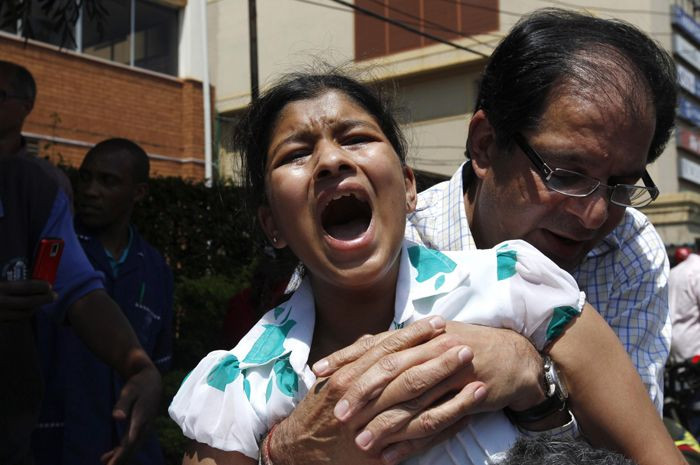Kenya Mall Attacks: Indians Living In Fear, Somalis Worry Over Backlash

The Sept. 21 attacks on an upscale shopping mall in Nairobi that killed 67 people and wounded hundreds of others has left Kenya’s small but economically powerful Indian community reeling and worried about its collective future.
The siege at the Westgate Shopping Centre by militants linked to Somalia’s al-Shabab terrorist group has imparted a disproportionate effect on Kenyan Indians, many of whom belong to the Gujarati merchant class, a community that has lived in Kenya, and other regions of East Africa, for well over a hundred years.
There are an estimated 100,000 people of South Asian origin living in Kenya.
Not only was Westgate built and owned by Indian companies, but many of the shops within the complex cater specifically to South Asians. Indians have significant economic clout in Kenya, and own numerous businesses and properties across the country, frequently earning the resentment of their black African hosts.
Indeed, the Ministry of Overseas Indian Affairs estimates that Indians control between 30 percent and 35 percent of the total economy of Kenya -- an extraordinary figure for such a small population.
"There is considerable fear among people, especially of Kenyan Asian origin, as more than 20 percent of the shops in Westgate were owned by Indians," Bahadur Janmuhad Amlani, an Indian of Gujarati descent, told BBC.
"People are afraid to come out of their homes. Even my business of selling household Indian goods has taken a hit. But [I hope] things will get back to normal soon."
At least 15, perhaps as many as 19, of the people killed in the attacks were of Indian origin.
Muljibhai Pindolia, president of the Kenyan Hindu Organization, called the attacks "a terrible loss not only for business but for all those who have lost their lives,” and demanded that the government "beef up security, not only for us but for every Kenyan."
But Chetna Pathak, an Indian housewife who lives near Westgate, does not think Indians were particularly targeted by al-Shabab.
"I don't believe that only Indians or any community was singled out by the attackers,” she told BBC. “And even if they [Indians] were [targeted] and even if they are shaken, we are as much a part of this society as any other Kenyan.”
Kenya, already scarred by sectarian and tribal rifts among its native black population, is likely sensitive to the notion that the country may be viewed as too dangerous for foreigners or minorities already settled there.
"There is an attempt to divide Kenyans along religious lines. We are bound to be united irrespective of religious differences and no such attempt to divide will be successful," assured former Prime Minister and current opposition leader Raila Odinga.
Kenya's Interior Minister Joseph Ole Lenku specifically guaranteed the safety of the Asian community by declaring they are "as safe in this country as anywhere else in the world."
Meanwhile, Somali refugees and immigrants living in Kenya, and especially Nairobi, fear a backlash arising from the deadly Westgate episode.
Already on Monday, some Kenyan MPs called for the closure of camps housing hundreds of thousands of Somali refugees in the country.
Sky News reported that in the heavily Somalian Eastleigh neighborhood of Nairobi, fears are climbing that native Kenyans will take out their anger and frustrations on them.
"People are worried about people coming and looting their businesses and they are also worried about authorities coming and doing a crackdown on Somalis," Ahmed Mohammed, a security consultant in the Eastleigh area, told Sky News.
"Basically, when things like this happen, Somalis are the victims."
But because Somalis in Eastleigh are already heavily burdened by poverty and unemployment, young men in the area might make perfect candidates for future al-Shabab recruits. Still, Somali immigrant Farah Atosh insisted that most members of his community steadfastly oppose al-Shabab.
"We are against them," he said. "We are not supporting them. You might see or hear some people saying al Shabab will not be able to carry out those attacks without the support of the Somali Diaspora but honestly that is false information."
Another immigrant, Karim Muse, said al-Shabab destroyed his homeland.
"I would like to go to Somalia but [while] the al Shabab are ... in Somalia, I don't want to go back,” he told SkyNews.
"They have destroyed Somalia's people. They don't like Somalis, don't like other Christians, they don't like anyone, only themselves. Al Shabab, they are cancer in the world."
© Copyright IBTimes 2024. All rights reserved.




















